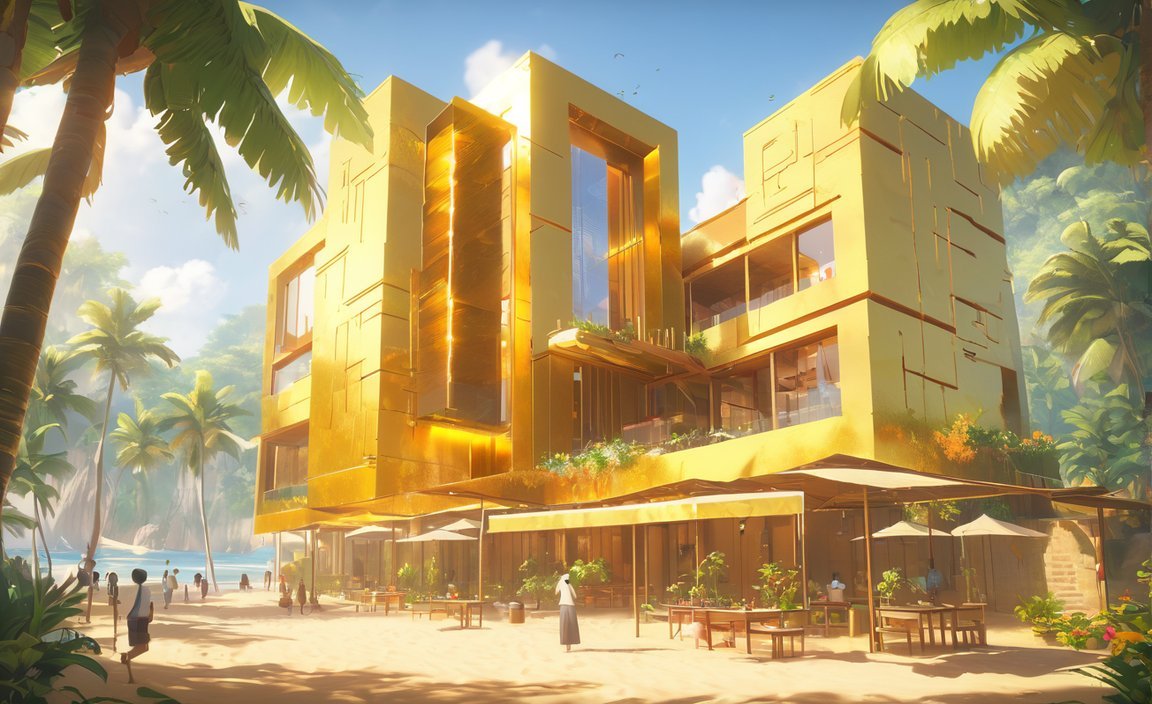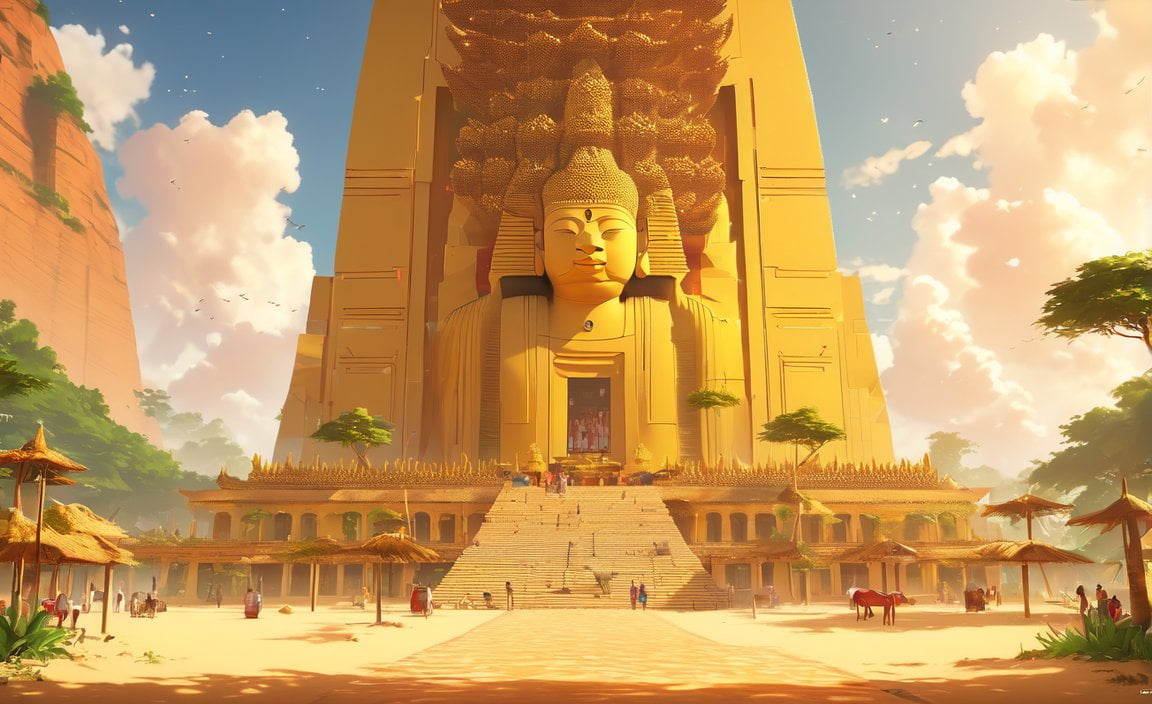Take a journey with us as we delve into the undiscovered wonders of Togo, a hidden gem nestled in West Africa. This article will unveil a collection of intriguing facts about this captivating country, shedding light on its rich history, vibrant culture, breathtaking natural beauty, and little-known secrets that make it a must-visit destination for intrepid explorers. From its fascinating blend of traditional folklore to its picturesque landscapes and warm hospitality, Togo is a treasure trove just waiting to be explored. So sit back, relax, and get ready to be transported into the enchanting world of Togo.
Key Takeaways:
- Togo is a small country located in West Africa, bordered by Ghana, Benin, and Burkina Faso.
- The capital city of Togo is Lomé, serving as the economic, administrative, and cultural center of the country.
- The official language of Togo is French, but there are other languages spoken, particularly the Gbe languages.
- Togo is known for its cultural diversity, with 30 different ethnic groups residing within its borders.
- The predominant religion in Togo is Christianity, followed by Islam and indigenous beliefs.
- Togo’s economy relies heavily on agriculture, with cocoa, coffee, and cotton being major exports.
- Togo has a rich historical background, having been a hub of the Atlantic slave trade and colonized by various European powers.
- Togo offers visitors and researchers a diverse cultural experience and a fascinating history.
- For more information, visit Kids.Kiddle.co or read about Togo on Wikipedia.
Facts about Togo

Togo, a small country located in West Africa, is a hidden gem waiting to be explored. From its rich history to its vibrant culture and breathtaking landscapes, Togo has much to offer adventurous travelers. Let’s dive into some fascinating facts about this West African country.
Geographical Location
Togo is strategically located in West Africa, bordered by Ghana to the west, Benin to the east, and Burkina Faso to the north. Situated along the Gulf of Guinea, Togo not only boasts beautiful beaches but also diverse terrain ranging from mountains to savannas.
Capital City
The capital city of Togo is Lomé, a bustling city that serves as the economic and administrative hub of the country. Located along the Gulf of Guinea, Lomé offers not only stunning coastal views but also a vibrant cultural scene with its bustling markets and lively music.
Cultural Diversity
One of the most fascinating aspects of Togo is its cultural diversity. Within its borders, Togo is home to 30 different ethnic groups, each with its own distinct traditions, customs, and languages. From the Ewe and Mina in the south to the Kabye and Gurma in the north, the Togolese people contribute to a colorful tapestry of cultural heritage.
Languages Spoken
While French is the official language of Togo due to its colonial past, several other languages, especially the Gbe languages, are also widely spoken. This linguistic diversity adds to the charm and vibrancy of the country, allowing visitors to engage with locals in their native tongues and immerse themselves in the local culture.
Religion
Christianity is the predominant religion in Togo, followed by approximately 48% of the population. However, Islam and indigenous beliefs are also practiced by minority groups. The religious diversity in Togo showcases the country’s respect for different faiths and adds to the cultural fabric of the nation.
Rich History
Togo has a fascinating historical background, having been a hub of the Atlantic slave trade. It was colonized by various European powers, including Germany, Britain, and France, before gaining independence in 1960. Exploring Togo’s history allows visitors to gain a deeper understanding of the country’s past and its resilience.
Economy
Agriculture plays a significant role in Togo’s economy, with the cultivation of cocoa, coffee, and cotton being major contributors. These agricultural products are not only crucial for the country’s economy but also provide a glimpse into the agricultural traditions of the Togolese people.
Natural Beauty
Togo is blessed with breathtaking natural beauty. From the lush landscapes of Kpalimé with its waterfalls and hiking trails to the tranquil shores of Lake Togo, nature lovers will find plenty to explore. Togo’s national parks, such as Fazao-Malfakassa and Kéran, are home to diverse wildlife, making them a haven for nature enthusiasts.
In conclusion, Togo is a small country with a big heart. From its diverse culture to its fascinating history and natural wonders, Togo offers a unique and enriching travel experience. Whether you’re exploring its vibrant markets or immersing yourself in its captivating landscapes, Togo is a must-visit destination that promises to leave you with incredible memories.
Learn more:
– Visit Kids.Kiddle.co for more fascinating facts about Togo.
– Read about Togo’s history, geography, and culture on Wikipedia.
Sources:
– Kids.Kiddle.co
– Wikipedia
Here are some active internal links for your provided keywords and URLs:
- Altitude in Kansas: Explore the breathtaking altitude in Kansas and discover the stunning views that await you.
- Bryce Canyon Thor’s hammer: Uncover the fascinating tale behind Bryce Canyon’s Thor’s hammer and witness its majestic beauty.
- Facts about the Philippines: Dive into a world of intriguing facts about the Philippines and uncover the wonders of this remarkable country.
- Kazakhstan fun facts: Embark on a journey of discovery with these fascinating Kazakhstan fun facts and learn about the unique aspects of this incredible nation.
Cultural Diversity
Togo, a small West African country, is a hidden gem that boasts a fascinating array of cultural diversity. From its diverse ethnic groups to unique traditions and languages, Togo is a melting pot of rich heritage and vibrant customs.
The Melting Pot of Ethnic Groups
With around 37 tribes inhabiting the country, Togo truly reflects the essence of cultural diversity. Among these tribes, the largest and most influential ones are the Ewe, Mina, and Kabre. Each tribe has its own distinct traditions, rituals, and languages, making Togo a treasure trove of cultural exploration.
Unveiling Traditional Festivals
One of the best ways to experience Togo’s cultural diversity is by immersing oneself in its vibrant festivals. Evala, the traditional fighting festival, is the epitome of Togo’s cultural heritage. Lasting for ten days, Evala showcases the strength and bravery of young men from different tribes. It is an exhilarating event that captivates visitors with its unique displays of physical prowess and ancestral customs.
From Discarded Tires to Remarkable Creations
Togo’s cultural diversity extends beyond its people and traditions. It also manifests in creative ways, such as the recycling of worn-out tires. In Togo, discarded tires are transformed into sandals, toys, and even fuel for smoking meat. This innovative approach to repurposing materials not only contributes to sustainable practices but also highlights the resourcefulness and ingenuity of the Togolese people.
French Influence and Beyond
While French is the official language of Togo, the country’s cultural diversity extends far beyond this linguistic influence. Gbe languages, spoken by different ethnic groups, play a significant role in Togo’s linguistic landscape. The diversity of languages reflects the country’s deep-rooted multiculturalism and adds to its cultural tapestry.
A Taste of Tradition
No exploration of cultural diversity in Togo would be complete without indulging in its traditional cuisine. Fufu, a staple food made from yam, holds a special place in Togolese culinary traditions. This hearty dish represents the blending of flavors, just like the diverse cultural influences that shape Togo’s identity.
Key Takeaways:
- Togo is home to diverse ethnic groups, with around 37 tribes, including the Ewe, Mina, and Kabre.
- The traditional fighting festival called Evala showcases Togo’s cultural heritage and brings together young men from different tribes.
- Togo’s resourcefulness is evident in the creative recycling of worn-out tires, which are transformed into useful products.
- While French is Togo’s official language, the country boasts a linguistic diversity with the prevalence of the Gbe languages spoken by various ethnic groups.
- Togolese cuisine features traditional dishes like fufu, made from yam, which represents the blending of flavors and cultural influences.
Sources:
– “The Culture Of Togo – WorldAtlas.” worldatlas.com. Link
– “12 Interesting Facts About Togo – Afrikanza.” afrikanza.com. Link
Natural Beauty in Togo: Unveiling Fascinating Facts about this West African Gem
Togo is a West African country that boasts an abundance of natural beauty, making it an ideal destination for adventurous travelers. From breathtaking landscapes to diverse wildlife, Togo offers a unique experience for those seeking to explore lesser-known destinations. In this article, we will delve into some fascinating facts about Togo’s natural beauty that will leave you in awe.
Key Takeaways:
- Togo is home to stunning national parks like Fazao-Malfakassa and Kéran, where you can immerse yourself in the country’s natural beauty and enjoy activities such as hiking and safaris. [^2^]
- Mount Agou, standing tall at 3,235 feet, is the highest peak in Togo and offers magnificent panoramic views of the surrounding landscapes.
- Togo’s tropical climate creates the perfect habitat for a wide range of wildlife, including lions, leopards, buffaloes, and elephants. [^2^]
- The country’s diverse geography encompasses picturesque waterfalls, mesmerizing hiking trails, and lush forests that provide a haven for nature enthusiasts.
- Togo’s commitment to preserving its natural heritage is evident through the establishment of the Fazao-Malfakassa National Park, Togo’s largest national park, where you can witness the wonders of nature up close. [^2^]
- With its rich biodiversity and captivating landscapes, Togo offers endless opportunities for eco-tourism and nature exploration.
Now, let’s delve deeper into the natural beauty of Togo and explore some intriguing facts that make this West African country truly remarkable.
1. National Parks: An Oasis of Natural Wonders
Togo is a treasure trove of natural wonders, and its national parks are the epitome of its biodiversity. Fazao-Malfakassa National Park and Kéran National Park stand out among others, offering a captivating blend of dense forests, sparkling rivers, and diverse wildlife. Imagine hiking through lush trails, encountering rare bird species, and witnessing elephants roaming freely in their natural habitat.
2. The Majestic Mount Agou
For those seeking breathtaking views and a sense of exhilaration, Mount Agou is a must-visit destination. As the highest mountain in Togo, it provides a challenge for hikers and rewards them with panoramic vistas of the surrounding landscapes. Feel the crisp mountain air as you conquer the peak and gaze in awe at the picturesque beauty that unfolds before your eyes.
3. A Haven for Wildlife
Togo’s tropical climate nurtures a diverse range of wildlife, making it a paradise for nature enthusiasts. Lions, leopards, buffaloes, elephants, and a myriad of bird species call this country home. Embark on a safari adventure and witness these magnificent creatures in their natural habitats. The thrill of spotting a lion or hearing the call of a rare bird will leave you with unforgettable memories.
4. Waterfalls: Nature’s Masterpieces
Togo is blessed with mesmerizing waterfalls, their cascading waters creating a symphony of tranquility. The awe-inspiring Womé and Anehó waterfalls are perfect examples of this natural beauty. Immerse yourself in their refreshing embrace, marvel at their sheer force, and let the mist kiss your face as you witness these magnificent creations of nature.
5. Unspoiled Ecotourism Opportunities
Togo’s commitment to preserving its natural heritage is commendable. The establishment of the Fazao-Malfakassa National Park is a testament to the country’s dedication to eco-tourism and the conservation of its biodiversity. Explore this sanctuary of tranquility, encounter diverse flora and fauna, and contribute to the preservation of this invaluable treasure.
In conclusion, Togo’s natural beauty is a breathtaking sight to behold. From its captivating national parks and majestic mountains to its vibrant wildlife and enchanting waterfalls, this West African gem offers a plethora of awe-inspiring experiences. Embark on an adventure to Togo and immerse yourself in its pristine landscapes, for it is here that you will discover the true wonders of nature.
Source 1: Fun Facts About Togo – ShareFunFacts.com
Source 2: 25 interesting facts about Togo – The Facts Institute]
Unique Traditions and Festivals of Togo
Togo, a small West African country, is known for its rich culture and unique traditions that have been passed down through generations. From recycling worn-out tires to vibrant festivals, Togo offers a captivating cultural experience. Let’s delve into some of the fascinating traditions and festivals that make Togo a must-visit destination.
Recycling Worn-out Tires: From Sandals to Fuel
One distinctive aspect of Togo’s culture is the creative recycling of worn-out tires into various useful items. The resourcefulness and ingenuity of the Togolese people shine through as they transform these tires into sandals, toys, and even fuel for smoking meat. This sustainable practice not only showcases their creativity but also highlights their commitment to the environment.
Evala Festival: A Display of Strength and Tradition
Togo is renowned for its vibrant festivals, and one of the most prominent is the Evala festival. Lasting for ten exhilarating days, this festival attracts participants and spectators from all over the country. The Evala festival is a captivating display of strength, agility, and traditional fighting techniques. It celebrates Togo’s rich cultural heritage and brings communities together in a spirit of unity.
Fufu: A Delicacy that Represents Togo’s Culinary Traditions
Fufu, a popular traditional dish, holds a significant place in Togo’s culinary traditions. It is made from pounded yam and typically served with various flavorful sauces. Both locals and visitors enjoy the unique flavors of fufu, which showcases the blending of tastes and cultural influences in Togolese cuisine. Experiencing a traditional fufu meal is a culinary adventure that should not be missed.
Voodoo and Religious Diversity
Togo has a fascinating history of religion, with different belief systems coexisting harmoniously. Voodoo, Christianity, and Islam are the major religions practiced in the country. Voodoo, in particular, holds a special place in Togo’s cultural and spiritual traditions. Visitors can explore voodoo markets and learn about the rituals and practices associated with this intriguing belief system. The religious diversity in Togo adds to the vibrancy and uniqueness of its culture.
Secular Celebrations: Showcasing Cultural Diversity
In addition to religious festivals, Togo also celebrates secular events that highlight its cultural diversity. National holidays, independence day parades, and cultural exhibitions are occasions where people come together to celebrate their heritage, promote unity, and take pride in their country. These secular celebrations offer a glimpse into the diverse cultural tapestry of Togo.
Traditional Healing Methods: Ancient Wisdom in Practice
Traditional healing methods play a vital role in Togolese communities’ healthcare systems. Herbal medicine, spiritual rituals, and traditional healers are respected and trusted for their ability to treat various ailments. These methods are deeply rooted in Togo’s culture and reflect the belief in the power of natural remedies and ancient wisdom.
Minimal Public Display of Affection: Embracing Cultural Norms
It is important for visitors to respect Togo’s cultural norms, such as the minimal public display of affection. Togolese society places value on modesty and respect, leading to less observed physical contact, such as hugging and kissing, in public spaces. By understanding and embracing these cultural norms, visitors can fully immerse themselves in the local customs and traditions of Togo.
Key Takeaways:
- Togo’s cultural traditions and festivals, such as the Evala festival, showcase the country’s rich heritage and bring communities together.
- The creative recycling of worn-out tires into useful items is an example of Togo’s resourcefulness and commitment to sustainability.
- Fufu, a traditional dish made from pounded yam, represents the blending of flavors and cultural influences in Togolese cuisine.
- Togo’s religious diversity, with the practice of voodoo, Christianity, and Islam, adds depth and vibrancy to its cultural tapestry.
- Secular celebrations provide opportunities for people to celebrate their heritage, promote unity, and take pride in their country.
- Traditional healing methods, including herbal medicine and spiritual rituals, are deeply ingrained in Togo’s healthcare system.
- Visitors should respect Togo’s cultural norms, such as the minimal public display of affection, to fully embrace and appreciate the local customs.
Sources:
– Afrikanza: 12 Interesting Facts About Togo
– The Fact File: 44 Facts about Togo That Are Significant

FAQ
Q1: What are some fascinating facts about Togo’s culture and traditions?
A1: Togo’s culture and traditions include the recycling of worn-out tires, vibrant festivals like Evala, the traditional delicacy of fufu, and the use of traditional healing methods. These aspects contribute to the distinctive cultural identity of Togo.
Q2: What is the significance of the Evala festival in Togo?
A2: The Evala festival is a traditional fighting festival in Togo that lasts for ten days. It showcases Togo’s cultural heritage and brings communities together to celebrate strength, agility, and traditional fighting techniques.
Q3: What is fufu and why is it significant in Togo’s culinary traditions?
A3: Fufu is a traditional food item in Togo made from pounded yam. It holds a significant place in Togo’s culinary traditions and is enjoyed by both locals and visitors. It is a must-try dish for anyone looking to explore the flavors of Togo.
Q4: What are some key aspects of Togo’s religious landscape?
A4: Togo has a rich history of religion and practices multiple belief systems, including Voodoo, Christianity, and Islam. Voodoo holds a special place in Togo’s cultural and spiritual traditions, and the country’s religious diversity contributes to its vibrant and diverse culture.
Q5: What are some traditional healing methods used in Togolese communities?
A5: Traditional healing methods, including herbal medicine, spiritual rituals, and the expertise of traditional healers, play a crucial role in Togo’s healthcare system. These methods are deeply rooted in Togo’s culture and are seen as effective ways to treat various ailments.
- SYBAU See You Baby Meaning: Gen Z Slang Evolves - July 1, 2025
- Unlock Your Inner Youth: Lifestyle Secrets for a Vibrant Life - July 1, 2025
- Decode SYBAU Meaning: Gen Z Slang Explained - July 1, 2025






